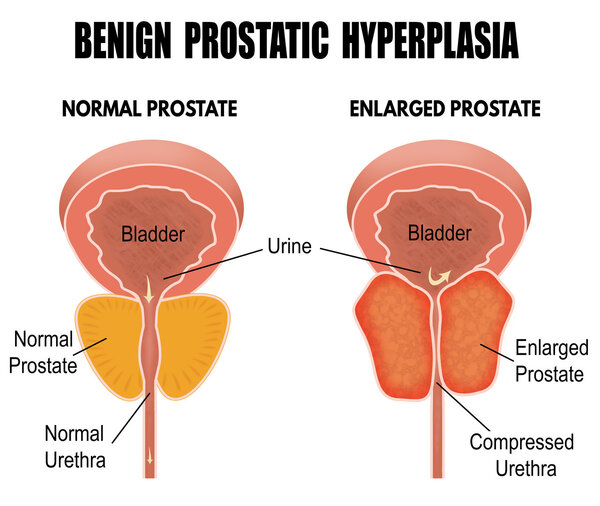How is your prostate ? 3 kinds of symptoms appear , be alert for prostate hyperplasia
Date:2021-01-28 click:0
Core tip : Prostatic hyperplasia is mainly due to the hyperplasias prostate oppressing the urethra , leading to a series of urinary system diseases . This disease can cause great troubles to men's health and life , therefore , early detection and prevention are very important .
Prostatic hyperplasia, also known as "prostatic hypertrophy", is a common "male" problem of prostate gland for middle-aged and elderly men.
Prostatic hyperplasia is mainly due to the hyperplasia of the prostate oppressing the urethra, leading to a series of urinary system diseases. Generally speaking, the incidence of benign prostatic hyperplasia is directly proportional to age. This disease can cause great troubles to men's health and life. Therefore, early detection and prevention are very important.
How to self-test for prostate hyperplasia? Pay attention to these three situations
1. Urination is not smooth
This is one of the basis for judging male prostate hyperplasia.
Due to the compression of the hyperplastic tissue, the male urethra will be squeezed, so there will be dysuria.
Difficulty urinating is manifested by the need to wait for several minutes when urinating, and symptoms such as weakness in urination, thinning of the urine flow, and incomplete ticking.
2. Frequent urination
After men suffer from benign prostatic hyperplasia, the early manifestations are frequent urination, that is, men urinate more frequently.
In patients with prostate hyperplasia, frequent urination is the earliest symptom. Patients can observe whether their urination frequency is more than usual.
Especially the number of nocturia in men increases, this symptom has more clinical significance.
3. Urinary incontinence
Men suffer from prostate hyperplasia, and when it is more severe, they may also experience urinary incontinence.
Experts pointed out that if urine is found to flow out uncontrollably on its own, it is likely to be prostate hyperplasia.

How to prevent prostate hyperplasia?
Here are some tips on health care of prostate hyperplasia, for men, especially middle-aged and elderly men, for reference.
1. Improve diet
Reducing the intake of high-cholesterol foods in the daily diet, such as animal liver, kidney and other internal organs, has a certain significance in preventing the occurrence and development of prostate hyperplasia.
2. Avoid irregular eating
Men are advised to have a light diet, no alcohol, no spicy food, and no smoking.
Avoid overeating when socializing, so as not to increase the burden on the genitourinary system.
After overeating, the sympathetic nerves are easily over-excited, which leads to hyperemia of the urethra and prostate, and induces acute urinary retention and dysuria.
3. Avoid overwork and catch cold
Men should avoid overwork and cold, which can cause bladder and prostate dysfunction, leading to urination disorders.
4. Actively prevent and treat urinary tract infections
Avoid indulgence and unclean sex, pay attention to drinking water, and avoid tolerating urine, otherwise it will easily cause urinary tract infection.
After suffering from a urinary tract infection, active treatment is required to avoid aggravating the condition and causing urethral obstruction.
5. Avoid taking drugs indiscriminately
There are many commonly used drugs that can induce or aggravate urinary retention, and they "take effect" very quickly, usually within 2-4 hours after taking the drug. The main types of drugs that may cause dysuria are as follows:
1) Antipsychotics, such as chlorpromazine (Hommanling);
2) Antidepressant drugs, such as doxepin (doxepin);
3) Antiasthmatic drugs, such as aminophylline;
4) Gastrointestinal antispasmodic drugs, such as atropine, anisodamine;
5) Anti-allergic drugs, such as phenazine (promethazine) and chlorpheniramine.
The above drugs should be used with caution in patients with prostatic hyperplasia.
6. Regular physical examination
Elderly people with benign prostatic hyperplasia have physical examinations at least 1-2 times a year in order to find other complications early, especially to rule out prostate cancer.
7. Use Chinese medicine to treat
Patients with benign prostatic hyperplasia can use some Chinese medicines for adjuvant treatment in the early stage of onset, such as taking some traditional Chinese medicines that promote blood circulation and remove blood stasis, nourish the kidney and nourish qi, diuresis and relieve diarrhea, etc., which are very helpful to delay the course of prostatic hyperplasia.
You may also be interested in:
Drug Treatment of Chronic Bacterial Prostatitis
Beware Of The Misunderstanding Of Prostatitis Treatment
Herbal Medicine Diuretic and Anti-inflammatory Pill Is Better than Antibiotics for Prostatitis
You may also be interested in:
Drug Treatment of Chronic Bacterial Prostatitis
Beware Of The Misunderstanding Of Prostatitis Treatment
Herbal Medicine Diuretic and Anti-inflammatory Pill Is Better than Antibiotics for Prostatitis



